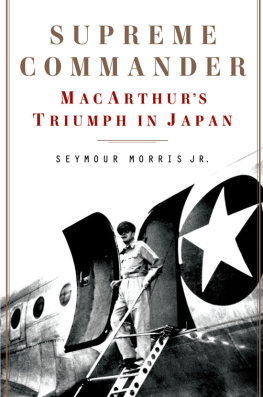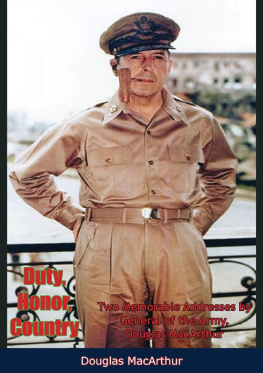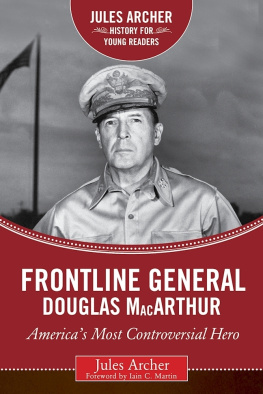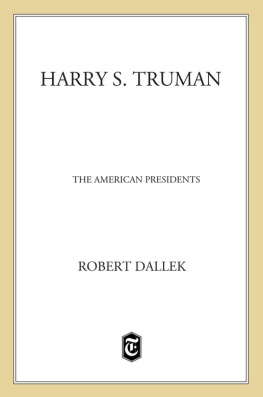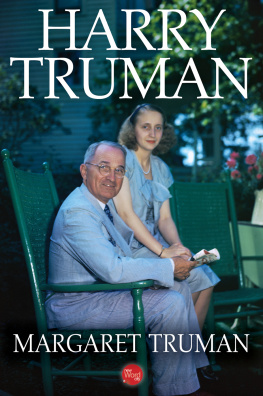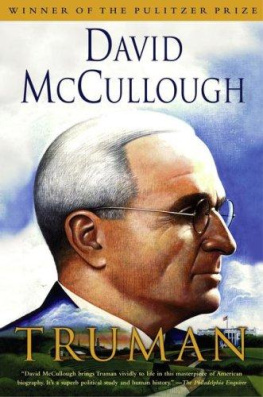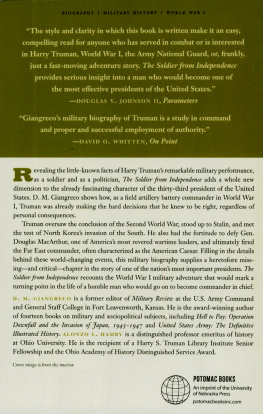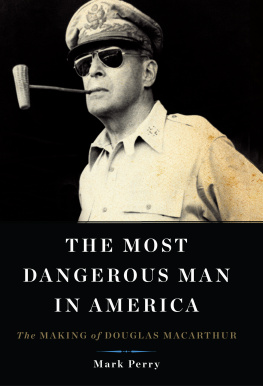To Alexander C. Hoyt
Contents
T HE FIRST QUESTIONS people often ask when they meet an author are: How did you choose to write this book? How long did it take you to write it?
First things first. When I applied to Harvard Business School many years ago, there was an interesting essay question on the application: If you had not chosen a career in business, which career would you choose? To which I answered, Write American history (my major in college). So, after thirty years in business and deciding I wanted to do something new and different with my life, I plunged in and became an author. And, lo and behold, I got my first book published by a major publisher. I was on my way.... In late 2012, I was talking with my literary agent about what to do next. There is so much fascinating history out there that often the hardest task for a historian is to try to narrow down all the options and choose a particular subject/theme to focus on. I had a particular topic I had spent several months developing and was passionate about. When I presented it to Alex Hoyt, he cast me a skeptical eye and shot his bullet: No, no, theres no market. (Youre a businessman, remember? You may have a brilliant idea, but if theres no market...) So what do you suggest? I asked.
In your business career youve always dealt with CEOs and government leaders, he said. So why dont you write about one of the greatest feats of American leadership: Douglas MacArthur in Japan? If only he knew: Just the week before I had resolved to clean up my library of unread books groaning on the bookshelves, and I had donated to a charity William Manchesters American Caesar , figuring Id never get around to reading it.
Properly humbled, off I went to the Argosy Bookstore in New York City, a treasure trove of secondhand books, to buy another copy. When Alex introduced me to Adam Bellow of HarperCollins, I made a two-minute pitch, and he said, I like it! and invited me to submit the obligatory forty-page proposal to secure a commitment. In so doing, I realized I had a particular advantage few authors have that can be all-important: an open mind. I was not in love with my subject, I was just intrigued with it. I was able to approach it with a tabula rasa.
It was an unusual proposal that I submitted. I explained that although many books had been written about MacArthur, and many books about the occupation, no book had been written analyzing why it had been so successfula sharp contrast to our hard-fought, frustrating effort in Iraq and Afghanistan.
As a management consultant who had spent many years working with large organizations and subsequently as an entrepreneur running my own international business, might there be lessons here worth noting? Unlike academics, I must also bring to the task the hands-on lessons I had learned (and not learned) over many years about what it takes to run an organization in which you are on the firing line and responsible for delivering results. I must put myself, as much as possible, in MacArthurs shoes. Whats your policy? Whats your strategy? How much time do you have? Do you take on two or three objectives, or do you take on ten? What kind of people do you hire? How quickly do you get rid of people who dont deliver even though they have powerful allies who could stir up trouble?
What do you tell your investors/bosses (in MacArthurs case, the president and the Joint Chiefs) when you fundamentally disagree with their priorities? Do you voice your concerns, or do you keep them secret and go ahead and do what you want to do anyway (like MacArthur did in imposing a new Japanese constitution)? How do you handle malcontent employees? Try an extreme example: How do you handle dissidentslike MacArthur didwho actually try to kill you? (Hint: MacArthur invited him for a cup of tea and let him go free.)
Most difficult of all, how do you handle a host country president or prime minister who doesnt cooperate as you would want him to? No matter how much you want to pack up and go home, you have to hang in there and keep negotiating.
The problems of running an organizationespecially a military occupation where nobody wants you aroundgo on and on, they never stop. The pressure is incessant and unrelenting What most impressed me about Douglas MacArthur is that he remained above the fray and always maintained control. He eventually got dismissed, but the fact remains that he had performed his job so well, he might as well leave, there was nothing more for him to do. He had outlived his usefulness.
And left behind a treasure of achievement worth exploring.
Second question: How long did it take you to write it? It took me exactly one year, only because I had set a deadline for myself: one year, and no more. (Time is money, remember.) In one year I read some 250 books and countless articles, pored through several archives, interviewed several people still alive, and cranked out four hundred pages. I worked day and night. There is a saying in business: If you want something done, give it to your busiest man. I was now that busiest man. Youd be amazed how efficient you suddenly become.
I met my deadline, my book is great (so I thought), nothing more needed to be done. Really? HarperCollins associate editor Eric Meyers and copy editor Susan Llewellyn got their hands on my document and put it through the wringer; it was agonizing, it was awful, there was blood on the floor. After two more months, when all was said and done, they destroyed 10 percent of my bookand made it 30 percent better. Never underestimate what a top book publisher can do for you. (Amazon: Please take note. Those of you thinking of self-publishing, take double note.)
I had the benefit of superb research facilities provided by the New York Public Librarymy office (especially the Milstein Room)and the Japan Society of New York Library and the MacArthur Archives in Norfolk, Virginia. As I undertook this writing effort, a number of close friends provided unswerving personal support: Arthur, Bob, Bruce, Buz, Copey, Craig, my wife, Gabriela, JC, John, Larry, Lindsay, Nina, Peter, Sandra, and Tony. And of course, Alex Hoyt, a man who does what few literary agents do: he specializes. He knows more history than I will ever know.
Left out, only because I dont know who you are, is you, the reader. Author acknowledgmentsso far as I can tellnever acknowledge this. Yet praise (and helpful criticism) is the highest honor an author can receive. I only hope you enjoy reading this book as much as I did writing it.
Douglas MacArthur was a man of major personal flaws and gigantic achievements. When he returned home in 1951, he was the biggest celebrity in America, the man who had saved Japan. Actually, he did more: quite possibly, he saved all of Southeast Asia. Today, because of his failure in Korea, he is largely forgotten (including by me, who had tossed out the Manchester biography of him). How wrong I was! Only by writing this book did I realize what he had accomplished in Japan was what I now conclude was the greatest achievement by Americas greatest general. To be sure, not everyone agrees that he was our greatest general, but certainly he was our most decoratedby a huge margin.
That we dont have men like him today in times of critical need is our nations loss. How wonderful it might have been to be able to sit down and talk with him....
Permit me to close with a real-life coincidence. In the course of my research, I stumbled on a 1947 Fortune article with a photo of Col. William T. Ryder. I was blown away: I knew William Ryder well. He was a founder of the American paratroopers, I had stayed at his home many times. He was the father of one of my closest prep school friends at St. Georges School, who turned out to be MacArthurs godson! (I never knew this, and the Ryders never name-dropped this fact.) When I tracked down my long-lost classmate and asked him about his godfather, he regretted he had never inquired deeply.

